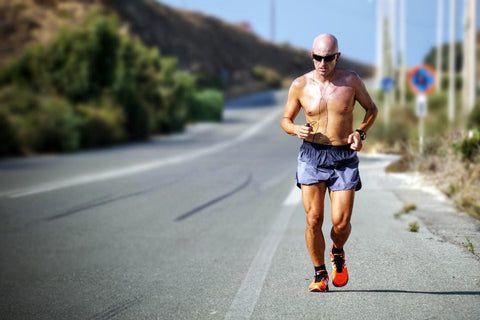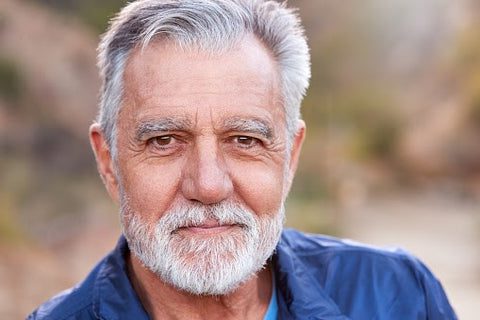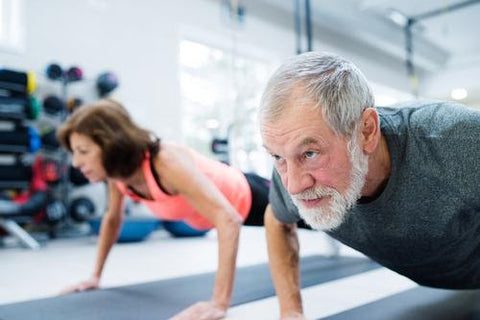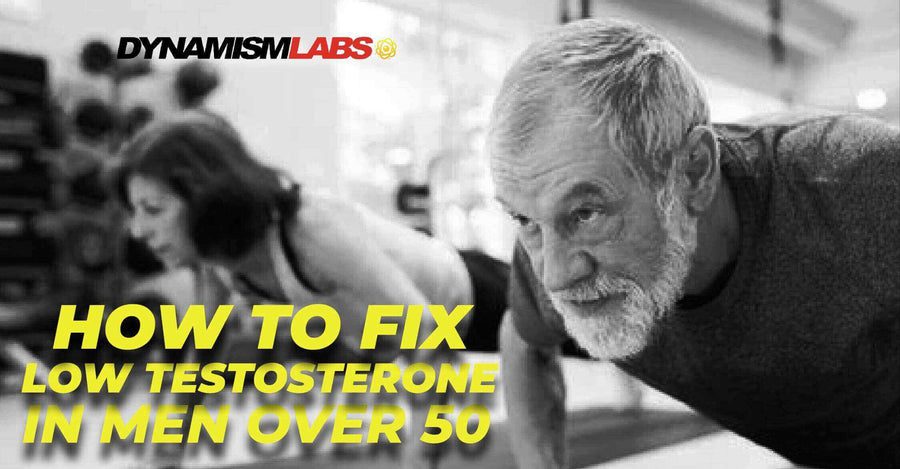Table of Contents

Upgrade Your Diet
It is no secret that what you eat has a impact on our bodies’ hormonal balance. In a 1988 study published in the National Library of Medicine, researchers at University of Utah’s Department of Medical Informatics investigated the correlation between nutritional factors and sex hormone levels in men. It was established that a high calorie diet rich in fats contributed to a drop in testosterone levels. Other studies using male athletes have also linked habits such as constant overeating and extreme dieting to the disruption of healthy hormonal production by the body.
Exercise More Often

These days, everyone talks about exercise for all sorts of benefits. It is probably starting to sound like a broken record. However, there is a good reason. There is a wealth of scientific evidence that shows exercise does more than just keep health issues at bay.
A 2011 study conducted by a research team from University of Cordoba’s Department of Morphological Sciences revealed that exercise not only increased reaction times and fitness in older men, but also testosterone levels.
Given the fact that these hormones drop as men age, regular exercise can no longer be viewed as a pastime but a requirement to maintain testosterone levels.
For older men who are either overweight or obese, regular healthy exercise is far more impactful in terms of raising testosterone.
You are probably now wondering what type(s) of exercise are the most effective?
Scientific publications emphasize the benefits of resistance training activities such as weight lifting as well as high-intensity interval training (HIIT). You know what else works well with an exercise or training program?
Testosterone boosters. We’ll discuss more about supplementation later in this article.
Lower Your Stress Levels

Nothing kills a man’s hormones faster than high stress levels. What happens is that when you are under high stress, the adrenal glands – which are responsible for hormone production – start to release a chemical known as cortisol.
A study published in the Journal of Clinical Endocrinology & Metabolism demonstrated that high levels of cortisol in the blood – also known as hyper-cortisolism – inversely impacts the circulating testosterone levels immediately.
Additionally, hyper-cortisolism triggers the body to hold on to excess fat which is also bad for testosterone production as we have explained in the previous section.
If you are suffering from chronic stress, you may want to look into meditation practices and perhaps a change in lifestyle. If there is still little impact, consider seeing a therapist to address any underlying mental issues.
Low testosterone levels will not just ruin your sex life, but also your confidence, and potentially relationships with others in your social circles.
Testosterone Supplementation for Older Men
Vitamin Supplements
Mineral Supplements
Testosterone Boosters That Work

The market is certainly not short of testosterone supplements. The beauty of the Testosterone booster from Dynamism Labs is that it doesn’t only contain one or two vitamins or minerals.
It combines most of the vitamins and minerals that have already been proven to help with testosterone production by drawing from the most potent, natural herbal sources.
Dynamism’s ManTFUp T-Booster contains a powerful blend of Horny Goat Weed extract, Tongkat Ali extract, Saw Palmetto extract, Wild Yam extract, and Boron amino acid chelate. This testosterone booster for men resolves the following conditions:
- Low sex drive
- Erectile dysfunction
- Loss of muscle mass
- Increased body fat
- Fatigue
- Hair loss
- Mood swings
- Brain fog
There is no reason to be ashamed if you suspect you have low testosterone. It happens to nearly aging men.
At Dynamism Labs we are committed to bringing back the spark and the drive of the youthful male in older men. We want you to have a long, healthy, active life which is why all our supplements undergo a rigorous process to not only meet the highest industry standards, but also contain components that are proven to be the most beneficial.
REFERENCES
- Timothy Bishop et. al., Department of Medical Informatics, University of Utah (1988): “The effect of nutritional factors on sex hormone levels in male twins” Retrieved from “https://pubmed.ncbi.nlm.nih.gov/3360302/
- D. Vaamonde et. al., Department of Morphological Sciences, School of Medicine, University of Cordoba (2018): “Impact of physical activity and exercise on male reproductive potential: a new assessment questionnaire”. Retrieved from “https://www.ncbi.nlm.nih.gov/pmc/articles/PMC5897111/
- Kaye K. Brownlee et. al., Endocrine Section – Applied Physiology Laboratory, Department of Exercise & Sport Science (2005): “Relationship Between Circulating Cortisol and Testosterone: Influence of Physical Exercise”. Retrieved from “https://www.ncbi.nlm.nih.gov/pmc/articles/PMC3880087/
- Janelle Martel and Daniel Murrell, M. D., Health Line (2020): “What Do You Want to Know About Low Testosterone?” Retrieved from “https://www.healthline.com/health/low-testosterone#TOC_TITLE_HDR_1
- Lana Barhum and Debra Rose Wilson, Ph. D., MSN, R. N., Medical News Today (2018): “How do you boost testosterone naturally?” Retrieved from https://www.medicalnewstoday.com/articles/322508

